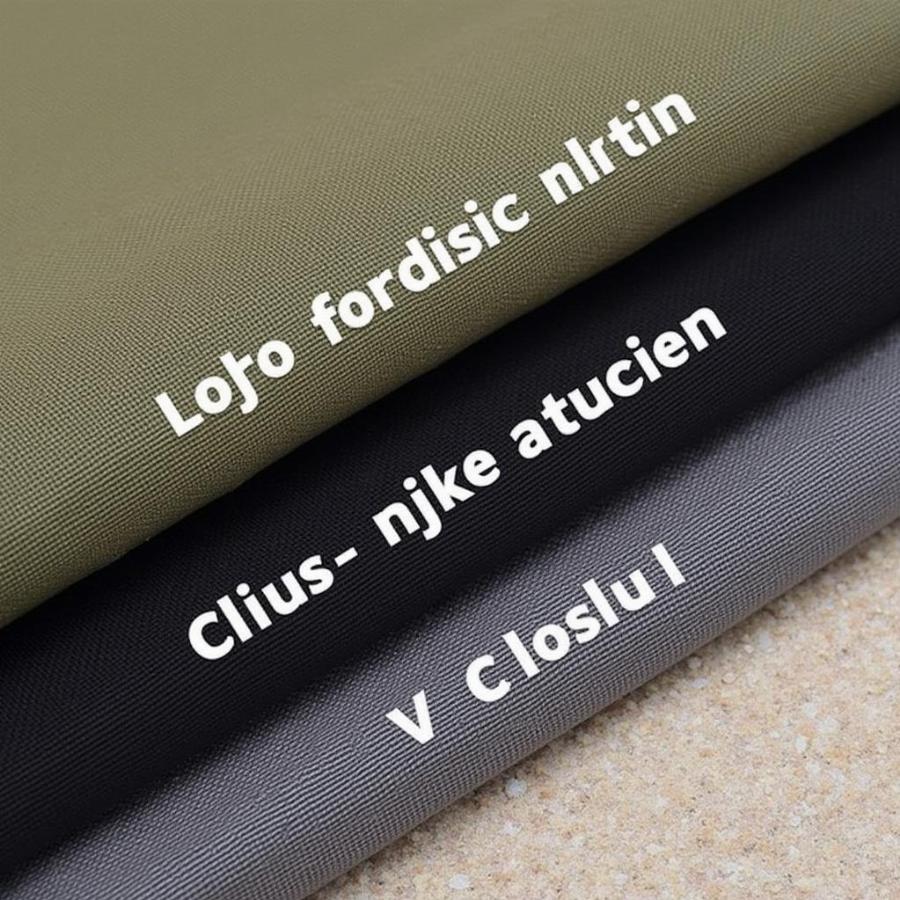Choosing the right bed for your furry friend can be a real headache, especially if they’re a champion chewer. A destroyed dog bed not only creates a mess but also poses a safety hazard. This guide dives deep into the world of “beds that dogs can’t chew,” offering practical advice and expert insights to help you find the perfect indestructible haven for your canine companion.
Choosing the Right Chew-Proof Dog Bed
Finding a truly indestructible dog bed is a challenge, but opting for “chew-resistant” options significantly increases the bed’s lifespan. Consider your dog’s chewing habits, size, and sleeping style when making your selection. Do they nibble gently or tear with gusto? Do they sprawl out or curl up in a ball? Answering these questions will guide you towards the ideal bed. For example, a heavy-duty, raised cot-style bed might be perfect for a large, powerful chewer, while a plush, bolster bed might suit a smaller, gentler chewer.
Materials Matter: What Makes a Bed Chew-Resistant?
The material is the key to a chew-proof dog bed. Look for beds made from durable, tear-resistant fabrics like ballistic nylon, ripstop canvas, or Cordura. These materials are designed to withstand wear and tear, making them a good choice for even the most determined chewers. Avoid beds made from flimsy materials like thin polyester or plush fabrics, as these are easily ripped and shredded.
 Durable materials for dog beds
Durable materials for dog beds
What About Metal Dog Beds?
Metal dog beds, particularly those made from aluminum or stainless steel, are another option for extreme chewers. These beds are virtually indestructible and easy to clean. However, they can be less comfortable than fabric beds, especially in colder climates. Consider adding a comfortable, chew-resistant pad or blanket for added warmth and comfort.
Beyond the Bed: Addressing the Root Cause of Chewing
While a chew-resistant bed is essential, it’s crucial to address the underlying reasons why your dog chews. Boredom, anxiety, and teething are common culprits. Providing plenty of chew toys, mental stimulation, and exercise can significantly reduce destructive chewing behavior.
Is a “Dog Bed Can’t Chew” Guarantee Realistic?
No dog bed is entirely indestructible. Even the toughest materials can succumb to a determined chewer. Think of “beds that dogs can’t chew” as more of a spectrum of chew-resistance. The goal is to find a bed that can withstand your dog’s chewing habits for a reasonable amount of time.
How to Make a Dog Bed Last Longer
Regular cleaning and maintenance can extend the life of your dog bed. Follow the manufacturer’s instructions for cleaning and ensure the bed is completely dry before your dog uses it. Rotate the bed regularly to distribute wear and tear evenly. Repair any small tears or rips promptly to prevent them from becoming bigger problems.
Conclusion: Finding the Perfect Chew-Resistant Dog Bed
Finding the right chew-resistant dog bed requires careful consideration of your dog’s individual needs and chewing habits. By focusing on durable materials, addressing the root cause of chewing, and providing appropriate alternatives, you can create a comfortable and lasting sleeping space for your furry friend. Remember, no bed is truly indestructible, but with the right approach, you can significantly reduce the risk of destruction and provide your dog with a cozy and safe haven.
FAQ:
- What is the most durable material for a dog bed? Ballistic nylon, ripstop canvas, and Cordura are excellent choices for chew-resistant dog beds.
- Are metal dog beds comfortable? Metal beds can be less comfortable than fabric beds. Adding a comfortable pad or blanket can improve comfort.
- Why does my dog chew their bed? Chewing can stem from boredom, anxiety, teething, or even just a natural instinct.
- How can I stop my dog from chewing their bed? Provide plenty of chew toys, exercise, and mental stimulation. Address any underlying anxiety or behavioral issues.
- What if my dog still chews their chew-resistant bed? No bed is entirely indestructible. Consider seeking professional advice from a veterinarian or dog trainer.
- How often should I clean my dog’s bed? Regular cleaning, following the manufacturer’s instructions, is essential for hygiene and longevity.
- What are some good alternatives to traditional dog beds for chewers? Raised cot-style beds or even durable blankets can be good options.
Do you have more questions about dog beds? Check out these related articles:
Beaut Dogs is your ultimate resource for all things dog-related, providing expert advice and guidance on choosing the right products for your canine companion. For personalized support and recommendations, please contact us at [email protected]. We’re here to help you find the perfect indestructible dog bed!